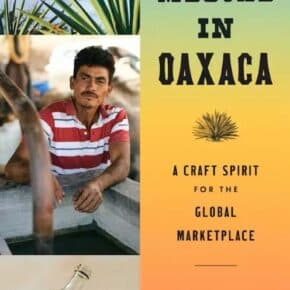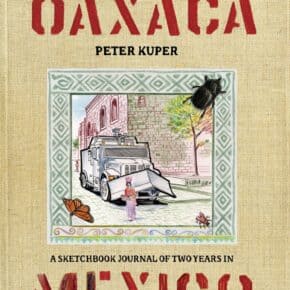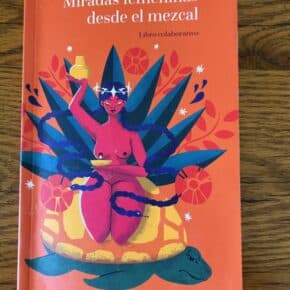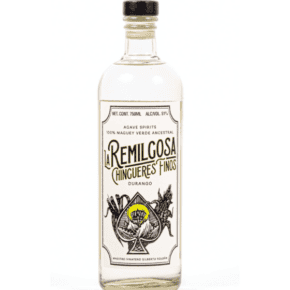This is a cross post from one of our frequent collaborators, Ferron Salniker. You can read her excellent blog Ferronlandia here. This piece was originally published on 4/18/16. You can read the original here.
On Saturday I went to hear Pati Jinich talk about her new cookbook, Mexican Today at Omnivore Books. Pati is a Mexican cookbook author, TV show host and resident chef of the Mexican Cultural Institute in DC. I’ve always read her email newsletter and when I can I follow her TV series, Pati’s Mexican Table. But after hearing her in person, I’m like that nervous woman with her whole family in the front row cradling Pati’s first cookbook: a really big fan.

Pati has a lovely presence and her stories go off on entertaining tangents, yet always come back to the point. Here are a few she made about Mexican food, following your passion, and of course, enchiladas.
- “People are afraid of the undefined mexican food.” Much of what Pati talked about was the long-time debate over authenticity when it comes to Mexican food, and particularly how stifling it was in the beginning of her career. She called the current state of Mexican food “unbridled,” constantly evolving and increasingly borderless. She cited migration and the regional cuisines and techniques being transplanted to U.S. cities, the belated recognition of African and other ancestries in Mexico, and the plain and obvious fact that foods like hamburgers, hotdogs and pizza are reinvented and enjoyed next to taco stands everyday. Who’s to say that a hamburguesa with piña, tocino and jalapeños is not Mexican, right?
- On the topic of authenticity and innovation, technique plays a major role. “You need to have certain techniques that are really Mexican, and then you can play!” She mentioned an example of being served enchiladas made with flour tortillas, making them soggy and sweet. “There’s this question now of which chefs can make what,” she said. “I think anyone can make anything, they should just understand the techniques that make certain things Mexican. And just don’t serve enchiladas with flour tortillas!”
- We need to have more conversations about the African diaspora in Mexico. We need to have more conversations about the African diaspora in Mexico. She’s having them in her cooking classes and in her book. After the Mexican Revolution the government and scholars wrote Mexico’s African heritage out of its national identity, and instead promoted the idea of the Mexican as “el mestizaje” a blend of indigenous and european influences. It has only been in the last couple of decades that the government has begun to officially recognize the role or presence of Afro Mexicanos in the culture and history of Mexico. The “third root,” as it’s called, recognizes Afro Mexicano roots alongside the indigenous and Spanish roots. “In this book I tried to show that Mexican food is a complex, beautiful mosaic,” she said. She highlighted a soup recipe made from hearts of palm with sweet potato croutons – ingredients we usually ascribe to African or Caribbean dishes. She also recognized the communities in Mexico with Asian, Eastern European, and Middle Eastern heritages and their culinary contributions. Her Jewish grandmother’s matzo ball soup with chiles makes it into the book as well. “It was very freeing for me personally and felt truer to Mexican food and the Mexico that exists today,” she said.
- Follow your passion, and be proud of your past experience. Pati was previously a political analyst before making the switch to cooking professionally, and a woman in the audience asked how she decided to make that leap. Feeling the pressure to do something different from the rest of her older sisters, Pati didn’t transition to cooking as a career like them until she had already finished a master and was pregnant with her third child. “You have to make the switch!” she said immediately. “Remember that everything you did before is going to be useful, because you are the only one bringing that experience to the table. And once you make that decision to switch, you’ll come at it with so much enthusiasm and you’ll have an edge no one else has.” I’ve already repeated that advice to two female friends.
- Learn the history of your food. “I think the history of a dish is important because we all know we have to put dinner on the table Tuesday or Wednesday night, and especially in the U.S. it’s become thought of as such a task,” she said. “But what you’re doing has legends behind it and history. It gives more meaning to your cooking, but also to the people eating it.”
Visit Pati’s website here and find her new book here.













Leave a Comment